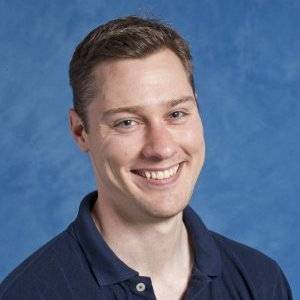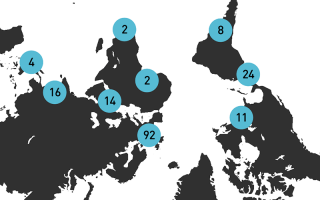Tom Aston (2008-2009): Governance Advisor for CARE International UK

Q: What initially sparked your interest in the DAP programme? What was your prior experience with development, if any, and what did you hope to achieve by participating in the course?
A: Before the DPU, I was working as an unpaid communications intern in a big USAID food security programme at CARE International in Bolivia. As is often the case, I entered the field with plenty of enthusiasm, but precious little to contribute. I had the great fortune of joining a team when there was lots of work and lots of people from whom to learn. I also got the opportunity to visit “the field” – nomenclature for “sat around a desk” rather than “sat behind a desk.”
The experience was eye opening mostly because it gave me a sense of the nuts and bolts, but I also learned some subtly pernicious aspects of the industry. For example, despite being little more than a lowly 22 year-old volunteer, because I was the only white guy around, the local population thought I was a donor from USAID. It didn’t help that in Bolivia what you study at university is emblazoned upon you as a profession; I had a philosophy degree, so I was presented to various communities as “a philosopher.” I still wonder whether this was mere subterfuge from my colleagues to cover up my inadequacy, but, with this inflated sense of importance, the philosopher asked “where do I see myself in 10 years?” I looked at the colleagues I wanted to be and realized they all had masters’ degrees; so I wanted one.
Q: How or where did you first hear about the DAP programme?
A: I found out about the DAP programme as I was sifting through development courses online. I had applied to all the DPU’s main competition and I made my choice based primarily on the fact that DAP offered a practical module (DA4). I wanted the opportunity to learn something further on development theory and then apply this in practice. The DPU was the only place that offered that mix of theory and practice.
Q: What was your favourite aspect or feature of the DAP course? What was your favourite module or subject?
A: Academically, I found the political economy of development course (now DA7) the most interesting, but the practical module (DA4) was undoubtedly the most useful.
Q: How has your career developed since completing the course? Where have you been working since graduation, and how did you get into that role? How has the course prepared you for your current career?
A: I finished the course in 2009 shortly after the zenith of the economic recession. So, considering scant appealing options, I went back to CARE Bolivia. Perhaps it sounds like marketing, but I came back a much more useful staff member. I’d acquired many of the basic skills I lacked before I started the course, having a better sense of the grammar of development planning – from frameworks; to log frames; to budgets. I went back to support monitoring and evaluation of various health and education projects and writing funding proposals for donors.
Months later, I’d managed to convince senior management that they needed help designing their programmes. I now had a degree in planning, so I was a “planner.” I supported the team to design their climate change adaptation, maternal and neonatal health, rural livelihoods and youth empowerment programmes. I also led a study on an infant maternal health cash transfer (Bono Juana Azurduy) which was part a research project led by Maxine Molyneux on whether cash transfers empower women.
Returning to Bolivia, I noticed various changes and wanted to study them, so I wanted a PhD too, it seemed. No sooner than I’d made it back to the UK, CARE asked me to carry out a consultancy on knowledge management and their communities of practice. My work on cash transfers also led to various consultancies for the Overseas Development Institute’s (ODI) social development programme, including a large piece of research on transforming cash transfers for DFID.
The DPU was also kind enough to employ me. I worked with Alex Frediani and Camilo Boano on Urban Settlements on High-risk Land: Relocation, Mitigation and Prevention. Guatemala and Bolivia, and I translated a book for Julio Davila on Urban Mobility and Poverty. By November 2012, I was working as a governance advisor for CARE International UK, where I provided technical support on CARE’s governance programming in Latin America (Bolivia, Ecuador and Peru) and later went on to support other country offices in Georgia, Ghana, Malawi and Egypt.
The bulk of my current work is around political economy assessments, social accountability, and advocacy. Last year for example, I wrote a series of blogs and a paper on domestic workers’ rights. Presenting alongside Naila Kabeer, who I had cited often in my master’s thesis, I found out the DPU now has a case study on domestic workers in the SDP programme; I’d come full circle. Since September 2011, I had been working on my PhD, pulling my hair out on what “my contribution” was, and by September 2013 it was time to take the plunge and start my fieldwork in La Paz and El Alto, Bolivia.
I once again had luck that lots of people were prepared to talk to me: ex-ministers, government functionaries, lots of “experts,” and even some real people. While doing my fieldwork, I wrote a paper with a Bolivian think tank on the factors and strategies that determine vulnerability and resilience, gave a presentation at Bolivia’s Central Bank, and wrote an article on how we had all misunderstood Evo Morales. By this point, there was hardly a buzzword I hadn’t written; I guess I’d made it.
Q: Do you have any words of advice for current or prospective students?
A: Be patient, don’t correct other people’s work in red, and most of all listen to the people you work for, not your boss or your organization, but to that voice inside your head that made you believe and to those less fortunate who deserve the opportunities you and I were lucky enough to receive.
 Close
Close


